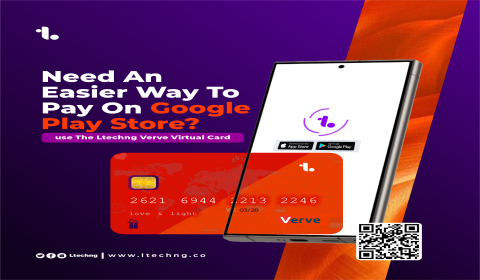
Cryptocurrency: The New Norm for Payments Among Nigerians and Africans at Large
Home/Cryptocurrency: The New Norm for Payments Among Nigerians and Africans at Large
Cryptocurrency: The New Norm for Payments Among Nigerians and Africans at Large
Cryptocurrency has swiftly transitioned from a niche technological innovation to a mainstream financial tool in many parts of the world. In Nigeria and across Africa, digital currencies are rapidly gaining acceptance as a standard mode of payment. This shift is fueled by various factors, including the need for financial inclusion, the quest for faster and cheaper cross-border transactions, and the growing distrust in traditional banking systems. In this article, we explore how cryptocurrency is becoming the norm for payments among Nigerians and Africans, reshaping the financial landscape and paving the way for a more inclusive economy.
The Rise of Cryptocurrency in Everyday Transactions
Over the past few years, cryptocurrency usage in Nigeria and Africa has surged, moving beyond mere speculation to being used for everyday transactions.
Peer-to-Peer (P2P) Transactions: Due to regulatory restrictions on banking interactions with cryptocurrency exchanges, Nigerians have embraced P2P platforms. These platforms allow users to buy, sell, and transfer cryptocurrencies directly with one another, making it easier to use crypto for day-to-day transactions such as buying goods, paying for services, and even settling utility bills.
Merchant Adoption: A growing number of businesses in Nigeria and Africa are accepting cryptocurrencies as a form of payment. From small local shops to larger online retailers, merchants are recognizing the benefits of crypto payments, including lower transaction fees, faster processing times, and access to a global customer base.
Financial Inclusion and Accessibility
One of the primary reasons for the growing acceptance of cryptocurrency as a payment method in Africa is the need for financial inclusion.
Reaching the Unbanked: Traditional banking systems often fail to reach remote areas and marginalized communities. Cryptocurrency, accessible through smartphones and the internet, offers a solution for millions of unbanked Africans. It enables them to participate in the digital economy without needing a bank account.
Alternative Banking: With cryptocurrency wallets, users can store, send, and receive digital assets without the need for a physical bank. This has become particularly valuable in countries with unstable banking systems or in regions where people have limited access to financial services.
Cross-Border Payments and Remittances
Cryptocurrency is transforming how Africans handle cross-border payments and remittances, which have historically been expensive and slow.
Cost-Effective Transfers: Traditional remittance services can be costly, with fees eating into the amount being sent. Cryptocurrencies offer a cheaper alternative, with significantly lower transaction fees, enabling more of the transferred value to reach its intended recipient.
Faster Transactions: Cryptocurrencies facilitate near-instantaneous transactions, regardless of the sender's or receiver's location. This speed is crucial for businesses that rely on timely payments and for individuals sending money to family members across borders.
LtechNG: Facilitating Crypto Payments
As the use of cryptocurrency for payments grows, companies like LtechNG are playing a crucial role in making this process more accessible and efficient for Nigerians and Africans.
Simplified Payment Solutions: LtechNG provides a platform where users can easily buy, sell, and use cryptocurrencies for everyday transactions. By streamlining the process, it enables individuals and businesses to engage with the crypto economy without the complexities often associated with digital currencies.
Fiat Conversion Services: One of the challenges of using cryptocurrency for payments is converting it into local currency when needed. LtechNG addresses this by offering seamless conversion services, allowing users to switch between crypto and fiat effortlessly, ensuring they can use their funds in any form they prefer.
Secure Transactions: LtechNG ensures that transactions are secure and reliable, building trust in the system and encouraging more people to adopt cryptocurrency as a standard payment method.
The Impact on E-commerce and Global Trade
Cryptocurrency is also making waves in the e-commerce sector and global trade, offering a borderless payment option that simplifies international transactions.
E-commerce Growth: Online retailers in Africa are increasingly adopting cryptocurrencies as a payment option. This not only attracts a broader customer base but also provides a more secure and efficient payment process, reducing the risks of fraud and chargebacks.
Global Market Access: By accepting cryptocurrencies, African businesses can easily tap into international markets without dealing with the complexities of foreign exchange and cross-border payment restrictions. This opens up new opportunities for growth and expansion.
Cryptocurrency has become a norm for payments among Nigerians and Africans, offering a viable alternative to traditional banking systems and enhancing financial inclusion. As more individuals and businesses embrace digital currencies, the financial landscape in Africa is undergoing a significant transformation. Startups like LtechNG are at the forefront of this change, providing essential services that facilitate the use of cryptocurrencies for everyday transactions. Despite regulatory hurdles, the adoption of crypto as a standard payment method continues to grow, signaling a future where digital currencies play a central role in the African economy.




